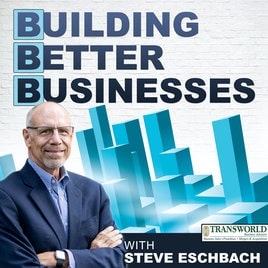10 Myths About Successful Entrepreneurs
Thinking of Hiring a Virtual Assistant?
Are you already a successful entrepreneur? In this kind of situation, you will already have some expertise in the day-to-day processes involved in operating a company all by yourself. You discovered that, in addition to what you had imagined, it took a large amount of time, money, and attention, right? The stress and the rapid pace of the situation will, fortunately (even though there are times when it doesn’t feel like it at all! ), develop both your character and your business acumen to a degree that you have never experienced before.
However, what would you say are the most common misconceptions that your loved ones, such as your friends and family, have about the job that you do in the corporate world? When you strive to achieve something that is so distinct from “the norm,” you put yourself at risk of being misunderstood. This is something that is not difficult to do at all. According to VA FLIX, the ten most widespread myths are addressed and disproved in the following list.
1. All successful entrepreneurs are bold innovators
It is not true that all new businesses are disruptive and are established from original ideas that are dreamed of when the entrepreneur is having a shower. This is a common misconception among businesspeople. In point of fact, the great majority of successful businesses were started by people who were presented with a specific problem in a subject in which they already had a large level of experience. These individuals saw an opportunity to solve the problem by starting their own business. They often possess an existing network of contacts as well as an advanced skill set that is important to the proposal. A significant number of individuals make the decision to leave their jobs in favor of launching their own companies. For instance, a graphic designer may start a new marketing firm, while a lawyer would establish a new solicitor’s practice. Both of these ventures are examples of entrepreneurs.
2. They are risk-taking gamblers.
In spite of the inspirational statements, the overwhelming majority of successful businesses make their ideas a reality by mitigating their risks to the fullest degree that is practically possible. Getting a few customers under their belt before going full-time, putting aside enough money from their current job to support themselves while they work on their new venture, and taking advantage of free resources (read: grants and training programs) are all excellent strategies for achieving this objective. Surprisingly, doing extensive market research on the idea at hand is not only a reliable way to assure that you will be developing a business that has a decent chance of being successful in the future, but it is also one of the most reliable ways to accomplish so. What kind of harsh rivalry exists in this industry? What will you do that will be ten times better than what your competitors are doing (which means that it will be sufficient to convince loyal customers to migrate to your brand)? Is it really feasible to make a profit by trading on the market?
I implore you not to just put your house up for sale and then keep your fingers crossed that everything turns out okay.
3. Entrepreneurs are OBSESSED with money!
If getting quick cash is your major objective, I can practically guarantee that you will not be successful in achieving that aim. Building a successful business takes time, and the goals you establish for yourself should be flexible enough to accommodate this. There might be times when the journey is rather difficult, and thinking about “how much money you will make” won’t drive you to get out of bed and continue moving forward. If you want to be a successful entrepreneur, you need to focus on the following three things: the impact that your idea will eventually have on the market (or on the world! ), the wonderful work-life balance that you will eventually be able to maintain when your business has grown to a decent size, or, believe it or not, simply the enjoyment of your day-to-day work; pushing boundaries, solving problems, and working under your own initiative. When you eventually get your hands on a million dollars, what are some things you plan to do with them?
Pssst! And if you could only believe it… According to the data, the average person who is self-employed has the ability to make more money by seeking work with another firm. However, this is not the case for those who are employed by themselves.
4. Successful entrepreneurs hate working for someone else.
The media contributes to the perpetuation of the caricature of entrepreneurs as lone wolves who get unsatisfied with their harsh and demanding employers and decide to go into business for themselves as a way to escape the situation. It’s true that the great majority of people who start their own businesses have a strong sense of independence, and it’s also true that this does truly mean that most of the time, they’d prefer to run their businesses on their own steam. In point of fact, a large number of individuals have started their own businesses because they feel they are able to perform better than other people in the industry. However, it is just not true that all owners of businesses dislike being told what to do and do not want to follow the recommendations of another person. This statement is simply not accurate. Many individuals feel that their previous jobs were the best times of their lives. The most successful entrepreneurs are good at cooperating with people in teams and recognizing that there will be times when they must pay attention to what others have to say and do as they have been told. Are you going to accept investments from people? Taking into account the advice provided by those who are widely regarded as leaders in their field? Utilizing the expertise of a trained medical professional There are a variety of situations in which “working for someone else” may end up being not just an unavoidable but also a desired course of action to take.
5. Entrepreneurs just need to “hustle” their way to success.
It goes without saying that in order to start a firm, you need a significant amount of fervor and dedication. However, I’m sorry to be the one to deliver the bad news when I tell you that just “hustling” won’t get you anywhere soon, and it certainly won’t scale. If only it were as easy as putting in a bunch of overtime and acting like Jordan Belfort from Wall Street, how much simpler life would be. You need a strong, well-considered strategy (even if it does not necessarily need to be a 60-page business plan) to give you focus and direction, but the talents, resources, and financial support to construct your organization are far more important. It doesn’t matter how loud you scream or how many people you scream at; if your product stinks or if you lack the financial resources to test how to promote your company in an effective manner, it’s possible that you’d be better off accepting that job at your neighborhood used car dealership after all.
6. Most entrepreneurs are left-handed dyslexics
It is not easy to start a new business, so it may be reassuring to believe that you are going to be successful because, in contrast to others who fail, you have some kind of unique quality that will provide you with superhuman abilities. This could be reassuring because it is not easy to start a new business. It’s conceivable that you’ve realized that you need less sleep than the average person does, or that the challenging events you experienced as a child have made you more resilient. Both of these explanations are plausible. In the same way, contrary to what you may have been led to believe during the inspirational talk that took place the night before, not only has it been demonstrated through scientific research, but people who are dyslexic or left-handed are not more entrepreneurial than the rest of us. Furthermore, the “super-human” qualities that you have imagined possessing are not likely to have much of an impact on your life. Left-handed people are not any more likely to be entrepreneurs than the rest of us, despite what you may have been led to believe during the inspirational talk that took place the night before.
7. They don’t sleep or see their families.
In point of fact, business owners who are aware of the impact that burnout has on their state of mind and, as a consequence, their firms are the ones that enjoy the greatest levels of success in their ventures. It is vital to acquire sufficient sleep and eat properly in order to feel sufficiently well-rested in order to solve problems, work successfully in a team, have a good mindset, and make sensible judgements. Other benefits of feeling adequately well-rested include: I’m sorry to be the one to break it to you, but the way your firm is being run isn’t very good. It won’t develop, and if you don’t get enough sleep or take time for yourself to socialize, it will almost certainly cause you to burn out. The administration of a successful business is more analogous to running a marathon than it is to competing in a sprint.
8. But entrepreneurs can also take time off whenever they like.
Even if the vast majority of individuals who launch new enterprises do so while buckling under a significant amount of pressure, there is still a chance that one day this may be the case. Due to the fact that they are responsible for things like meeting deadlines and paying debts, it is not correct to say that they are free to take time off whenever they want to do so. The fact that they are in command of a corporation does not give them free rein to act in any way that they see fit, including showing up to work at 10:00 in the morning on a whim, taking a vacation whenever they like, or acting in any other way that they want. It is entirely possible to create a good work-life balance with some careful preparation and the execution of appropriate company processes; nonetheless, business owners typically confront higher time limitations than anyone else does in their daily lives.
9. Entrepreneurship is a young person’s game.
You could think that the stories of Colonel Sanders starting KFC when he was 66 years old are an exception and that the genuine entrepreneurs of today are young people working in technology in Silicon Valley. In point of fact, the average age of a person when they start their first business as a founder is forty years old. Does the realization take you by surprise? A person who has established a good career, particularly one that can support a wife, two children, and a mortgage, will generally have a great lot more to lose than a younger person would. This is especially true if the successful work supports the family’s financial obligations. Younger individuals are naturally and logically more comfortable taking risks for a variety of reasons, and this is one of those reasons. Studies have revealed that older individuals have higher levels of experience, resources, connections, and self-awareness than younger people do. This disadvantage, however, may be compensated by the fact that older people have these higher levels.
10. Successful entrepreneurs must pitch a la Dragon’s Den
There is a widespread misunderstanding that successful company owners have no choice but to seek financial assistance in the form of the program “Dragon’s Den.” However, this is not the case. Contrary to what you may have been led to believe, banks are actually lending to a greater number of small businesses than you may have been led to believe. The overwhelming majority of successful businesses are founded not on equity finance but rather on (mostly personal) debt. The majority of successful enterprises are founded not on equity finance but rather on (mostly personal) debt. What happens, on the other hand, if you don’t need any kind of financial assistance at all? The most successful businesses have been able to expand their operations simply by reinvesting the money that their contented customers have spent with them over the course of many years. This strategy has allowed many businesses to achieve unprecedented levels of success.



















